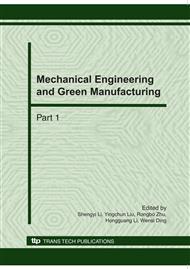p.780
p.785
p.790
p.795
p.801
p.806
p.811
p.815
p.820
Method of Subjective Lexicon Creation for Chinese Sentiment Analysis
Abstract:
The lack of Chinese subjective lexicon in the study and application of the subjective and emotional information restricts the further development of subjectivity analysis of Chinese words. Based on the current situation of and demand for Chinese sentiment analysis, the method of automatically obtaining subjective lexicon from the target corpus is studied. A creation method of subjective lexicon is presented, the subjective lexicon and language model are defined, a self-adaptive subjectivity bootstrapping algorithm and the characteristic model of subjectivity attribute are designed, and all these lead to the realization of the automatic judgment of sentiment polarity, subjectivity intensity and the subjectivity and objectivity of a word in the subjectivity entry. Experiments prove that by using machine learning the proposed method of automatic creation of Chinese subjective lexicon is highly efficient and with excellent performance.
Info:
Periodical:
Pages:
801-805
DOI:
Citation:
Online since:
October 2010
Authors:
Price:
Сopyright:
© 2010 Trans Tech Publications Ltd. All Rights Reserved
Share:
Citation:


